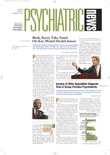In addition to cultural, technical, and cost barriers to adopting health information technology (IT), a new government report indicates that federal laws are another barrier. Health IT includes clinical systems such as electronic health records, billing systems, and the infrastructure to support them, according to the report from the Government Accountability Office (GAO). The GAO, known until recently as the Government Accounting Office, serves as the government watchdog agency that investigates issues at the request of members of Congress.
Sen. Judd Gregg (R-N.H.), chair of the Committee on Health, Education, Labor, and Pensions, asked the GAO in the spring to examine efforts by the Department of Health and Human Services (HHS) to promote health IT, wrote Janet Heinrich, GAO director of health care and public health issues, in a letter to Judd.
“From May through August of this year, we examined major HHS initiatives to promote IT among public and private health care providers, legal barriers to health IT adoption, and HHS efforts to address the barriers,” Heinrich wrote.
HHS has devoted about $228 million this fiscal year to 19 major health IT initiatives including the development of standard clinical terminologies and local demonstration projects of health information systems, Heinrich said.
In July HHS announced a national strategic action plan for promoting the use of health IT (Psychiatric News, August 20).
“Experts that we interviewed said that beyond legal issues related to privacy and security of health information, several laws present barriers to IT adoption,” Heinrich pointed out. These laws involve fraud and abuse, antitrust, intellectual property, federal income tax, medical malpractice, and state licensing.
“Because the laws do not address health IT arrangements directly, health care providers are uncertain about what constitutes a violation or risk of litigation,” Heinrich wrote.
For example, the physician self-referral and antikickback laws are intended to prevent fraud and abuse. They prohibit physicians from referring patients to health care providers with whom they have a financial relationship or accepting payment for patient referrals.
Health care providers have been reluctant to offer IT to physicians with whom they have a professional relationship because the arrangement may violate one or more of these laws. Some experts also worry that physician IT arrangements could be seen as anticompetitive and thus in violation of antitrust laws, according to the report.
A Department of Justice official clarified that physician IT arrangements are unlikely to violate antitrust laws if the benefits to the people they serve clearly outweigh the anticompetitive impact, the GAO said.
Tax-exempt hospitals are concerned about losing their tax status if they provide physicians with IT resources or that income will be taxed if they charge for IT use, the GAO wrote. Hospitals and other health care facilities often invest significant financial resources in developing health IT systems. Despite copyright protections, the health care providers are concerned about losing revenue due to unauthorized uses of their health IT system, the GAO reported.
Physicians were also concerned that providing medical advice electronically or practicing telemedicine across state lines might violate state licensing agreements, the GAO found.
Efforts by HHS and other federal agencies to address laws that pose barriers to IT adoption have been limited so far, Heinrich said in her letter to Judd.
HHS officials are developing regulations that would exclude electronic prescribing technology from the physician self-referral and antikickback laws. HHS also said that hospitals can provide free or discounted IT to doctors for referral decisions but cautioned that “any exception to these laws would need to be carefully crafted to avoid abusive arrangements,” the GAO wrote.
Janet Heinrich's letter and the report, “HHS's Efforts to Promote Health Information Technology and Legal Barriers to Its Adoption,” are posted online at<www.gao.gov/atext/d04991r.txt>.▪
